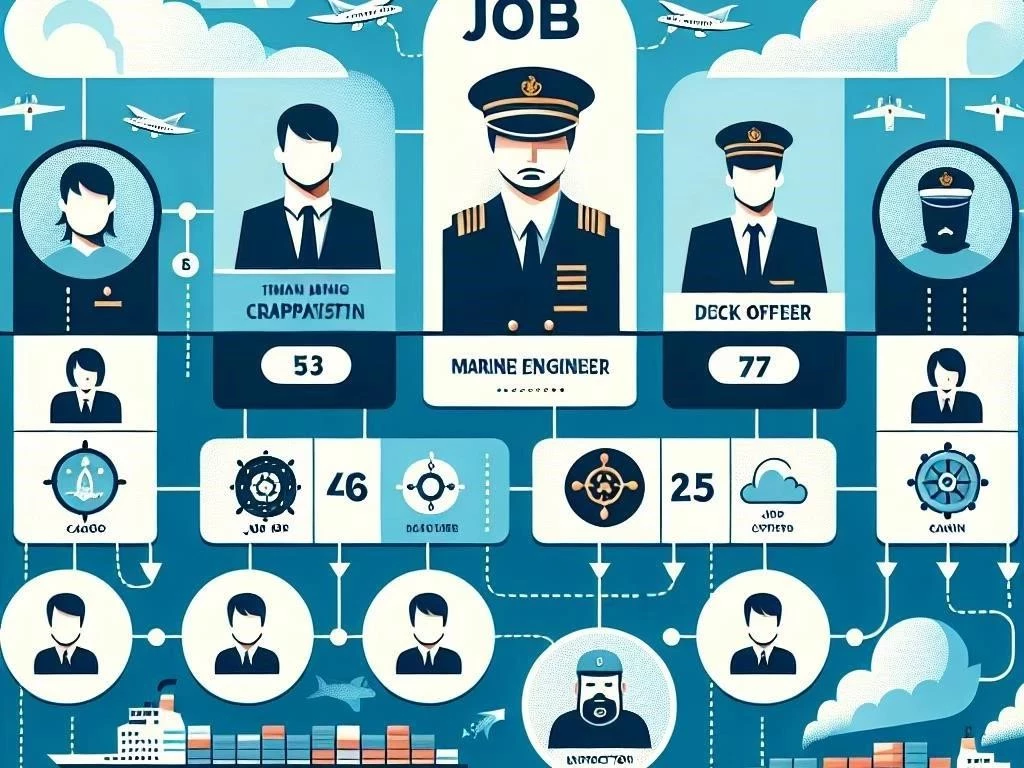How Many Jobs Are Available in Marine Transportation
Marine transportation offers diverse job opportunities across various sectors, including shipping industry jobs, maritime employment, and logistics positions, catering to a growing workforce demand.
Understanding Marine Careers
The marine transportation sector boasts thousands of jobs, encompassing various roles from vessel operations to cargo handling, highlighting its significance in global trade and logistics.
Overview of Marine Careers
Marine careers encompass a wide range of job opportunities essential to the global economy. Currently, the marine transportation industry offers numerous positions, with estimates suggesting hundreds of thousands of roles available worldwide. These roles span various sectors, including shipping, logistics, and port management, catering to diverse skill sets; From seafarers to marine engineers, individuals can find employment in vessel operations, cargo handling, and freight services. Furthermore, maritime safety and environmental considerations are increasingly shaping job availability and requirements. As global trade continues to expand, the demand for skilled professionals in marine careers is expected to grow. This growth presents exciting prospects for prospective job seekers and those interested in pursuing a fulfilling career within the marine transportation sector.
Importance of the Shipping Industry
The shipping industry plays a crucial role in global trade, with approximately 90% of the world’s goods transported via sea. This immense demand for ocean transport creates millions of job opportunities in marine transportation. As international trade continues to expand, shipping companies require a diverse workforce to manage vessel operations, cargo handling, and logistics positions. Additionally, the industry’s reliance on maritime safety and regulatory compliance underscores the need for trained professionals in various roles, including marine engineering and port management. Moreover, the environmental impact of shipping has led to increased job openings in sustainable practices and underwater exploration. Consequently, the shipping industry remains a vital component of the global economy, providing numerous career paths for those seeking employment in marine transportation.
Types of Jobs in Marine Transportation
Marine transportation provides diverse job opportunities, including roles in vessel operations, cargo handling, shipping management, and logistics positions, catering to a growing workforce demand.
Shipping Industry Jobs
The shipping industry offers a vast array of jobs essential for its operations, with estimates indicating hundreds of thousands of positions available globally. These jobs range from roles in vessel operations, where crew members ensure safe navigation and cargo transport, to shore-based positions in logistics and shipping management. Cargo handling is another critical area, requiring skilled professionals to manage freight services and ensure timely delivery. As international trade continues to grow, the demand for shipping industry jobs is expected to rise, providing ample opportunities for job seekers. Additionally, advancements in technology and increasing focus on sustainability are shaping new roles within the industry. Overall, the shipping sector remains a significant source of employment, contributing to economic development and global trade efficiency.
Maritime Employment Opportunities
Maritime employment opportunities are extensive, reflecting the industry’s critical role in global commerce. With millions of jobs available, the marine transportation sector encompasses a wide range of positions, including those in vessel operations, port management, and marine engineering. Additionally, roles in logistics and cargo handling are integral to maintaining efficient supply chains. The demand for qualified seafarers continues to rise, as shipping companies seek skilled professionals to navigate and manage vessels. Furthermore, the industry’s commitment to safety and environmental regulations enhances job prospects in compliance and sustainability roles. As marine technology evolves, new career paths in underwater exploration and research are also emerging. This dynamic landscape offers a multitude of career opportunities for individuals interested in pursuing a future in maritime employment.
Logistics Positions in Marine Transportation
Logistics positions in marine transportation are vital for keeping global supply chains running smoothly. With the increasing volume of goods transported by sea, the demand for logistics professionals is rapidly growing. Estimates suggest that thousands of jobs are available in this field, encompassing roles in freight management, inventory control, and distribution planning. Logistics experts ensure that cargo is efficiently loaded, transported, and delivered to its destination, requiring strong organizational and communication skills. Additionally, these positions often involve coordinating with shipping companies, customs authorities, and other stakeholders to ensure compliance with regulations. As the industry adapts to technological advancements, logistics roles are evolving, incorporating data analysis and automated systems to enhance efficiency. This growth offers numerous opportunities for individuals pursuing careers in marine logistics.
Key Areas of Marine Transportation
Marine transportation encompasses key areas like vessel operations, cargo handling, and logistics, each contributing to numerous job opportunities within the growing maritime employment sector.
Vessel Operations
Vessel operations represent a critical area within marine transportation, providing numerous job opportunities essential for the smooth functioning of shipping activities. This sector includes various roles, such as ship captains, navigators, engineers, and deckhands, each playing a vital part in ensuring safe and efficient maritime operations. With an increasing number of vessels traversing global trade routes, the demand for skilled personnel in vessel operations continues to rise. Estimates suggest that thousands of job openings exist in this field, particularly as industries seek to enhance safety, compliance, and efficiency on board. Additionally, advancements in technology and automation are creating new roles within vessel operations, further expanding the job market. Overall, this dynamic area offers diverse opportunities for individuals passionate about marine careers.
Cargo Handling and Management
Cargo handling and management are essential components of marine transportation, responsible for the efficient movement of goods across global trade routes. Numerous job opportunities exist in this area, encompassing roles such as cargo supervisors, freight coordinators, and warehouse managers. The rise in international shipping has led to an increasing demand for skilled professionals who can efficiently manage cargo operations, ensuring timely loading, unloading, and storage. Estimates indicate thousands of positions are available, reflecting the importance of this sector in maintaining supply chain efficiency. Furthermore, advancements in technology, including automation and data analytics, are reshaping cargo handling processes, creating new roles and enhancing job prospects. Overall, the cargo management field offers diverse career opportunities for those interested in maritime logistics and operations.
Seafarer Opportunities and Roles
Seafarer opportunities and roles are abundant within the marine transportation sector, offering a wide range of positions for individuals seeking careers at sea. Estimates suggest there are hundreds of thousands of jobs available for seafarers globally, including roles such as ship officers, engineers, and ratings. These positions are critical for the safe navigation and operation of vessels transporting goods worldwide. As the shipping industry continues to grow, the demand for skilled seafarers is expected to rise, providing ample job prospects. Additionally, advancements in maritime technology and a focus on sustainability are leading to new roles in environmental compliance and safety management. Consequently, seafarers can expect diverse career paths and opportunities for professional development in this dynamic and essential field of marine transportation.
Specialized Nautical Jobs
Specialized nautical jobs encompass various roles, including marine engineering and underwater exploration, providing unique career opportunities within the marine transportation sector for skilled professionals.
Marine Engineering Positions
Marine engineering positions play a crucial role in the marine transportation sector, focusing on the design, construction, and maintenance of ships and maritime equipment. This specialized field offers numerous job opportunities, with estimates highlighting thousands of openings worldwide. Marine engineers are responsible for ensuring the vessel’s machinery and systems operate efficiently and safely, which is essential for successful maritime operations. As the shipping industry evolves, the demand for skilled marine engineers continues to rise, driven by advancements in technology and a growing emphasis on sustainability. Additionally, marine engineering roles often involve collaboration with other professionals across various sectors, enhancing career development and networking opportunities. Overall, the marine engineering field presents diverse and rewarding career paths for individuals passionate about maritime technology and innovation.
Underwater Exploration Careers
Underwater exploration careers are an exciting and growing segment of marine transportation, focusing on research and conservation of marine environments. This field offers a range of job opportunities, including marine biologists, underwater archaeologists, and ROV (remotely operated vehicle) operators. Estimates suggest that as global interest in ocean conservation and resource management increases, numerous positions are becoming available. Professionals in this field conduct critical research to understand marine ecosystems, assess the environmental impact of shipping activities, and explore underwater resources. Additionally, advancements in technology are enabling new exploration techniques, further expanding job opportunities. As awareness regarding the importance of marine conservation grows, underwater exploration careers will continue to gain prominence, offering rewarding paths for individuals passionate about the ocean and its preservation.
Port Management and Operations
Port management and operations encompass various roles, providing numerous job opportunities within the marine transportation sector, essential for facilitating efficient cargo movement and logistics.
Roles in Port Management
Roles in port management are vital to the effective functioning of marine transportation, providing a range of job opportunities that are crucial for logistics and operations. The port management sector encompasses various positions, such as port directors, operations managers, and logistics coordinators. These professionals oversee the daily operations of ports, ensuring efficient cargo handling, safety compliance, and coordination between shipping lines and terminal operators. Estimates indicate that thousands of jobs exist within this field, driven by the increasing volume of global trade and the need for improved port efficiency. Additionally, technological advancements are reshaping port management, creating new roles focused on data analysis and automation. Consequently, the demand for skilled professionals in port management continues to grow, offering diverse career paths for individuals interested in maritime operations.
Boat Crew Responsibilities
Boat crew responsibilities are essential for the safe and efficient operation of vessels within the marine transportation sector. Crew members undertake a variety of tasks, including navigation, maintenance, and cargo handling, each contributing significantly to overall vessel performance. The demand for qualified boat crew is substantial, with estimates suggesting thousands of job opportunities available globally. Positions can range from deckhands and mates to engineers and captains, each role requiring specific skills and training. Additionally, as the shipping industry evolves and emphasizes safety and compliance, the need for well-trained crew members continues to grow. Advancements in technology and automation are also creating new responsibilities, further expanding opportunities within this field. Overall, boat crew roles offer diverse career paths for those passionate about marine operations and seafaring adventures.
The Future of Marine Transportation Jobs
The future of marine transportation jobs appears promising, with numerous opportunities emerging due to advancements in technology, environmental regulations, and evolving industry demands for skilled professionals.
Impact of Environmental Regulations
The impact of environmental regulations on marine transportation jobs is significant, as these regulations drive the industry’s need for skilled professionals focused on sustainability and compliance. With increasing global awareness surrounding environmental issues, companies are now required to implement greener practices, leading to the emergence of numerous job opportunities. Positions in environmental compliance, sustainability management, and eco-friendly vessel design are becoming essential, reflecting the industry’s shift toward reducing its ecological footprint. Estimates suggest that thousands of new jobs may be created as companies adapt to stricter regulations and seek innovative solutions for mitigating environmental impact. Additionally, training and certification programs for these roles are expanding, ensuring a skilled workforce ready to meet future challenges. Overall, environmental regulations are reshaping the job landscape within marine transportation, creating diverse career paths.
Technological Advancements in Shipping Management
Technological advancements in shipping management are transforming the marine transportation industry, leading to an increase in job opportunities across various sectors. Innovations such as automation, artificial intelligence, and data analytics are streamlining operations, enhancing efficiency, and improving decision-making processes. As shipping companies adopt these technologies, new roles are emerging, including data analysts, IT specialists, and automation engineers, responsible for implementing and managing advanced systems. Estimates indicate that thousands of jobs will be created as the industry integrates more technology into its operations, requiring a workforce skilled in both maritime knowledge and technical expertise. Furthermore, ongoing training and education will be essential to prepare professionals for these evolving roles. Overall, technological advancements are reshaping the job landscape, offering diverse career paths for individuals interested in the future of marine transportation.
Maritime Safety and Regulatory Compliance
Maritime safety and regulatory compliance are critical components of the marine transportation industry, significantly influencing job availability and demand. As global shipping activities expand, the need for professionals focused on safety standards and regulatory adherence continues to grow. Positions such as safety officers, compliance managers, and maritime auditors are essential for ensuring that vessels and companies meet international safety regulations and environmental guidelines. Estimates suggest that the demand for skilled workers in these areas will increase, resulting in thousands of new job opportunities. Enhanced training programs and certifications will also become increasingly important as the industry adapts to evolving regulations. Overall, maritime safety and regulatory compliance roles are crucial for maintaining operational integrity and fostering a culture of safety, creating diverse career paths in marine transportation.














Post Comment